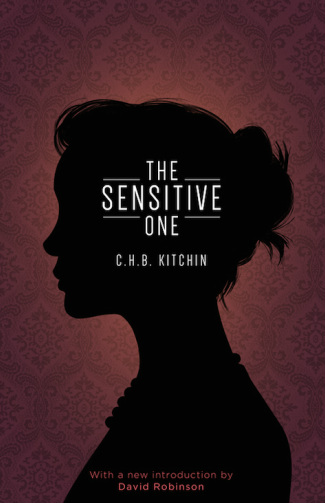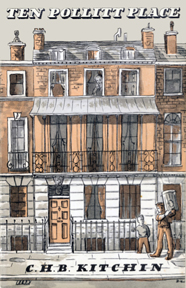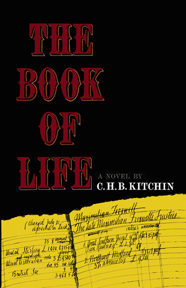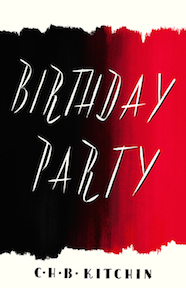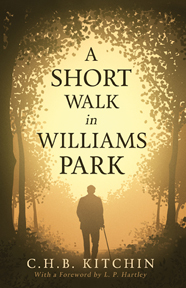|
BOOK DETAILS
Trade paper ISBN-13: 978-1941147207 List Price: $15.99 U.S. Pages: 134 Published: 2014 |
The Sensitive One (1931)
C.H.B. Kitchin With a new introduction by David Robinson Book Description
“Remind yourself twenty times a day, how you, an intelligent and attractive woman of thirty-six, are squandering your life in an uncomfortable house, full of selfish half-wits, deprived of friends, all reasonable interests, and even reasonable affection. Make plans for your own future, and be hard.” This is Hector Moxhay’s advice to his sister, Margaret, whose guilt over a cruel act she committed years ago keeps her shackled to her despotic father and mentally disturbed sister. But when old Mr. Moxhay’s grandson John is expelled from school over a homosexual scandal, a chain of events is set in motion that will lead to unexpected consequences for the family and a possible means of escape for Margaret. Will she continue to sacrifice herself to her father’s tyranny and her sister’s mental illness? Or will she have the strength to break free and make a bid for her own happiness? Featuring many of the same qualities and themes that would distinguish his later masterpieces, C.H.B. Kitchin’s The Sensitive One (1931) was originally published to critical acclaim by Leonard and Virginia Woolf’s Hogarth Press and counted L. P. Hartley and Lytton Strachey among its many admirers. This first-ever republication of the novel includes a new introduction by David Robinson discussing the queer subtexts of this unusual novel. |
reviews
“Mr. Kitchin has achieved a very considerable feat . . . written with amazing economy . . . in short, it is a work of art.” – Spectator
“A writer who deserves to be admired and cherished.” – Francis King
“Mr. Kitchin is one of the cleverest, most intellectual, and most challenging of our novelists, and he has the rare merit of giving these qualities the flavour of a personality: they humanise and refresh his story instead of drying it up.” – L. P. Hartley
“Clever and ruthless.” – Guardian
“A fine novel.” – Daily Mirror
“A writer who deserves to be admired and cherished.” – Francis King
“Mr. Kitchin is one of the cleverest, most intellectual, and most challenging of our novelists, and he has the rare merit of giving these qualities the flavour of a personality: they humanise and refresh his story instead of drying it up.” – L. P. Hartley
“Clever and ruthless.” – Guardian
“A fine novel.” – Daily Mirror
ALSO AVAILABLE THROUGH ONLINE RETAILERS
MORE TITLES BY THIS AUTHOR
AUTHOR BIOGRAPHY
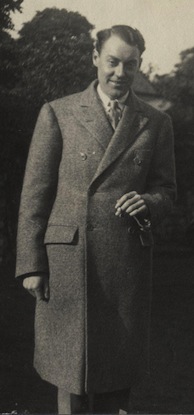
C.H.B. (Clifford Henry Benn) Kitchin was born in Yorkshire in 1895. He attended Exeter College, Oxford, and published his first book, a collection of poems, in 1919. His first novel, Streamers Waving, appeared in 1925, and he scored his first success with the mystery novel Death of My Aunt (1929), which has been frequently reprinted and translated into a number of foreign languages.
Kitchin was a man of many interests and talents, being called to the bar in 1924 and later amassing a small fortune in the stock market. He was also, at various times, a farmer and a schoolmaster, and his many talents included playing the piano, chess, and bridge. He was also an avid collector of antiques and objets d'art.
Kitchin was a lifelong friend of L. P. Hartley, with whose works Kitchin’s were often compared, and was also a friend and mentor to Francis King, who later acted as Kitchin’s literary executor. In his introduction to the Valancourt edition of Kitchin’s The Book of Life, King recalls meeting Kitchin after the two wrote fan letters to one another in 1958 that crossed in the mail: King had written in praise of Ten Pollitt Place, while Kitchin’s letter had expressed admiration for the younger novelist’s The Man on the Rock (1957). King wrote, ‘[B]y the time that I met him, his fate was that of many elderly, once famous writers in England. Instead of lead reviews, he now got two or three paragraphs at the bottom of a page. Increasingly critics would apply the dread word “veteran” to him, much to his annoyance.’ This frustration is echoed in his novel Ten Pollitt Place, where Kitchin portrays himself in the character of the aging novelist Justin Bray.
Kitchin, who was gay, lived with his partner Clive Preen, an accountant, from 1930 until Preen’s death in 1944. C.H.B. Kitchin died in 1967.
Kitchin was a man of many interests and talents, being called to the bar in 1924 and later amassing a small fortune in the stock market. He was also, at various times, a farmer and a schoolmaster, and his many talents included playing the piano, chess, and bridge. He was also an avid collector of antiques and objets d'art.
Kitchin was a lifelong friend of L. P. Hartley, with whose works Kitchin’s were often compared, and was also a friend and mentor to Francis King, who later acted as Kitchin’s literary executor. In his introduction to the Valancourt edition of Kitchin’s The Book of Life, King recalls meeting Kitchin after the two wrote fan letters to one another in 1958 that crossed in the mail: King had written in praise of Ten Pollitt Place, while Kitchin’s letter had expressed admiration for the younger novelist’s The Man on the Rock (1957). King wrote, ‘[B]y the time that I met him, his fate was that of many elderly, once famous writers in England. Instead of lead reviews, he now got two or three paragraphs at the bottom of a page. Increasingly critics would apply the dread word “veteran” to him, much to his annoyance.’ This frustration is echoed in his novel Ten Pollitt Place, where Kitchin portrays himself in the character of the aging novelist Justin Bray.
Kitchin, who was gay, lived with his partner Clive Preen, an accountant, from 1930 until Preen’s death in 1944. C.H.B. Kitchin died in 1967.

